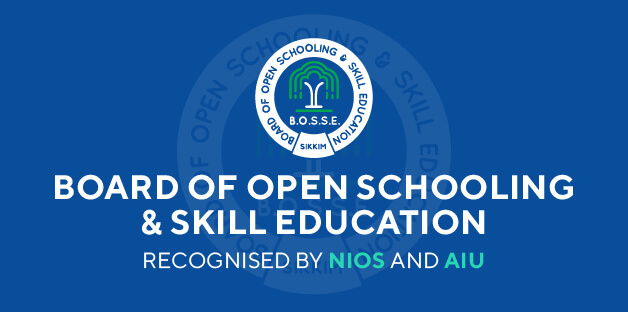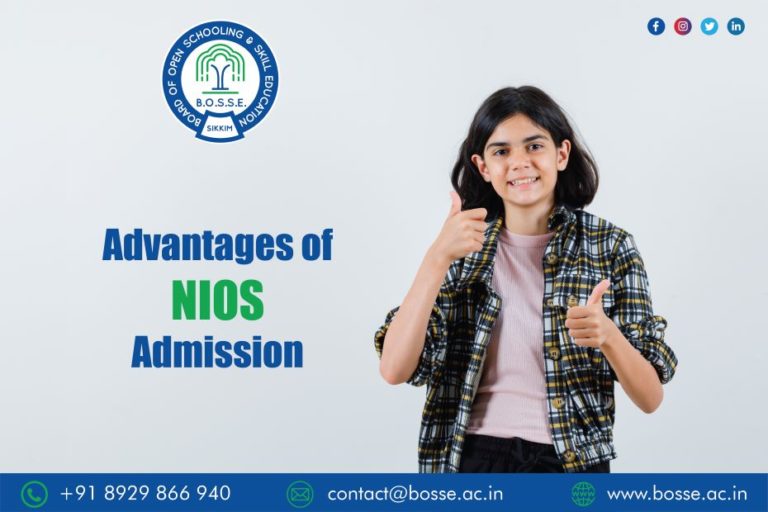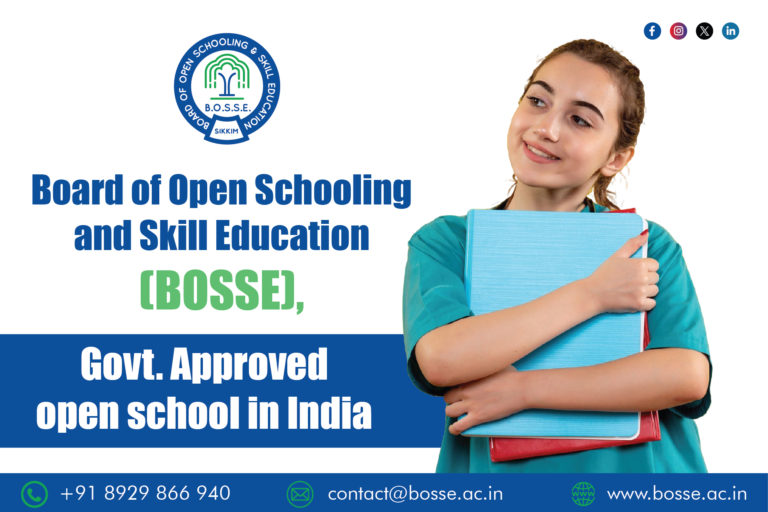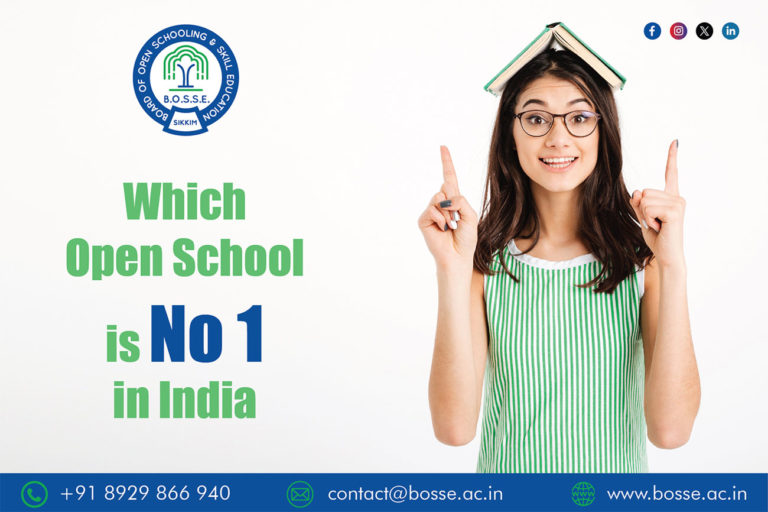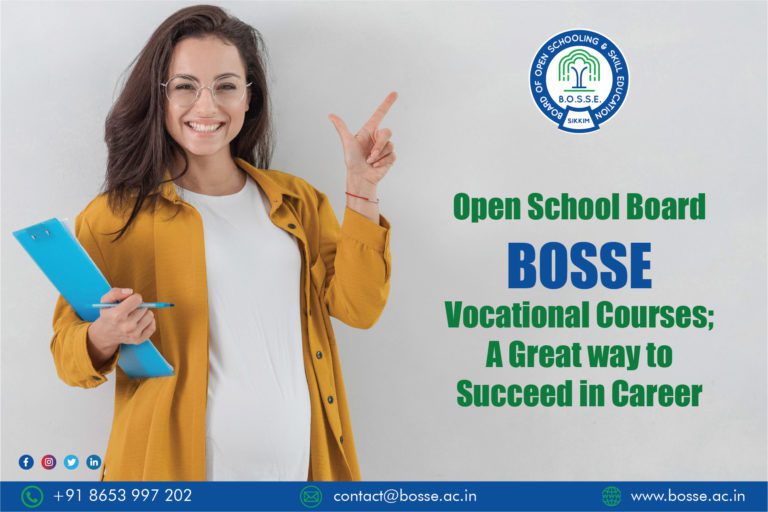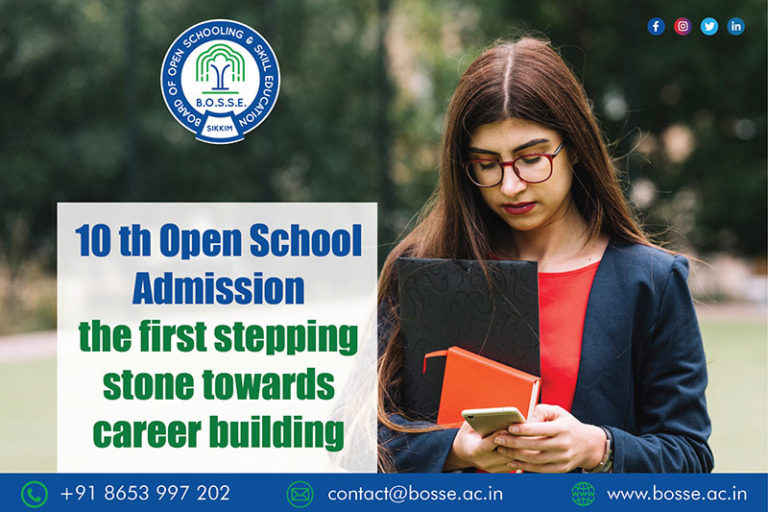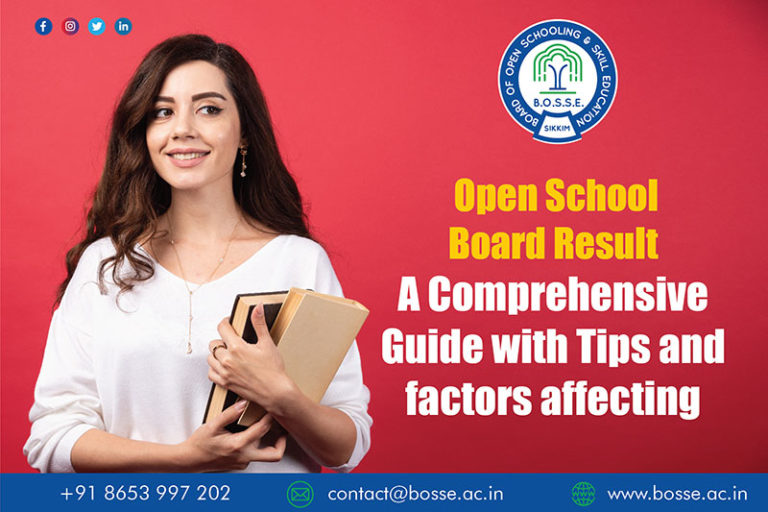Open Schooling Boards – BOSSE And NIOS Provide Open Schooling
India has a unique educational system, with various educational boards at both the national and state levels. But whenever we think of open schools, the first name that comes to mind is NIOS or National Institute of Open Schooling. Because it encourages students to strive for success, open schooling can alter society and bring out the best in individuals in India. NIOS, a National Board of Open Schooling is the world’s largest open schooling organization, with over thirteen lakh students enrolled at the secondary and senior secondary levels. According to the Indian government, Education is a “key catalyst for encouraging socio-economic mobility in developing an equal and just society,” In a multilingual and multicultural country like India, however, NIOS alone will not be able to match the demands and variances of all regions. Expanding responsibility and coverage while also expanding enrolment beyond a certain threshold is challenging for any national organization. Considering that ensuring universal education is a state responsibility, numerous Indian state governments have begun to push open schooling as a means of making the educational system more flexible and accessible to all students. NIOS, however, provides professional and technical help to the states.
Following this initiative, the Government of Sikkim founded BOSSE – Board of Open Schooling and Skill Education, a well-known Open School in Gangtok under Act No. 14 of 2020. BOSSE’s credentials have been granted equivalence status by AIU, indicating that they can be used in future studies. This open board is on par with AIU or NIOS in terms of prestige. It enables you to resume your school education and complete your academic year’s exams without having to attend a single class at your school or college. The board was formed to regulate non-formal education and other vocational in India, with the assistance of educational professionals, to educate school dropouts, private candidates, uneducated youth, girls, men, and women to improve India’s literacy rate. The Board’s education program is self-contained and is based on NCERT and NIOS syllabus. The education program’s legality, validity, and use are all in strict accordance with India’s constitution. In a nutshell, BOSSE allows you to complete your education while also honing your inner skills, allowing you to pursue a satisfying profession in a range of sectors. The board is specifically designed to deliver education to people from all walks of life to improve literacy and equip students for flexible learning.
Being equivalent to NIOS, BOSSE an Open Board offers a wide choice of secondary, senior secondary, and vocational education programs at a relatively low cost. Students that attend BOSSE have complete control over their education. They choose what they will study, how they will learn, how quickly they will work, whether they will use any additional learning aids, and when their learning will be evaluated, i.e., when they will take the exam. BOSSE, like the National Board of Open Schooling, allows students to mix and match subjects to meet their individual needs and objectives. They can learn at their own pace using self-instructional resources that are tailored to their needs. Using the ODE (On-demand examination) system, students can take subject exams one at a time, according to their readiness. Audio-video and face-to-face contact lessons are held at the study centers during vacations and weekends to enhance BOSSE open learning. The student’s registration is valid for five years. During their five-year entrance period, students can change or add subjects as long as the overall number of subjects taken does not exceed seven.
Furthermore, students have the flexibility and freedom to learn at their speed with BOSSE. Home-schooled students who want to take milestone exams to enter graduate or diploma programs. This board can help students with special needs, persons who want to pursue professional sports or other careers, children who can’t cope with a second language, and those who don’t want to go through the rigors of a standard academic program. Anyone, regardless of caste, creed, locality, or educational background, is welcome to enroll in BOSSE’s courses. Its priority target groups include the following:
- Rural and urban people
- Female population
- Disadvantaged groups
- Unprivileged section of the society
- School dropouts
- Minorities
- Unemployed and partly employed people
- People with special needs (physically and mentally challenged)


